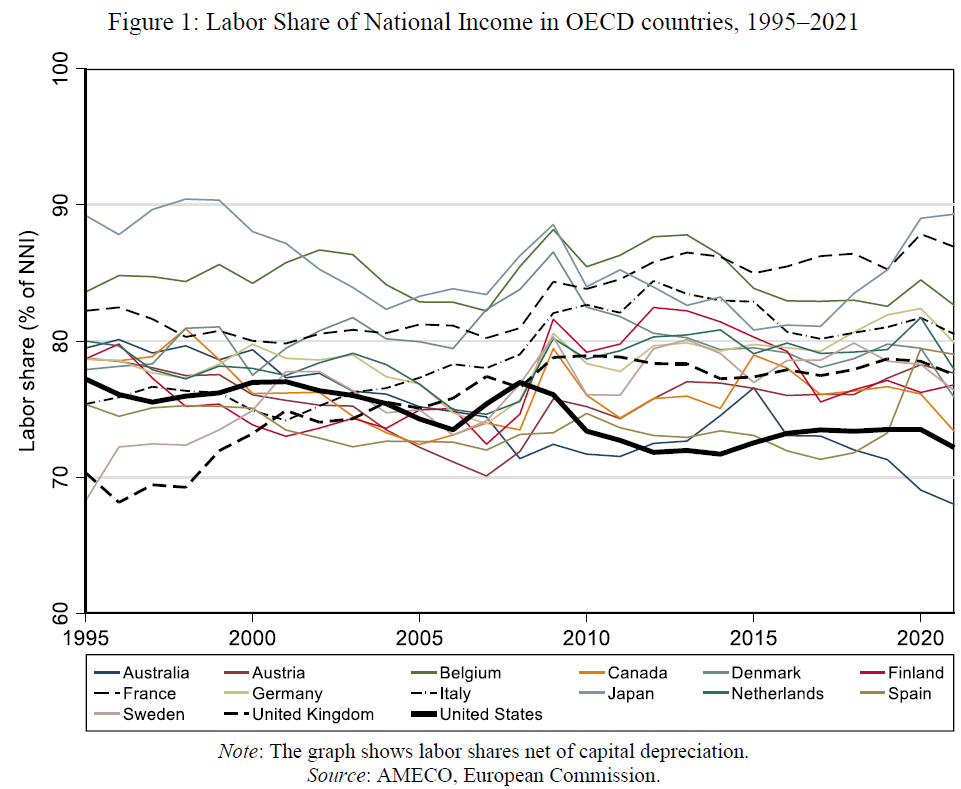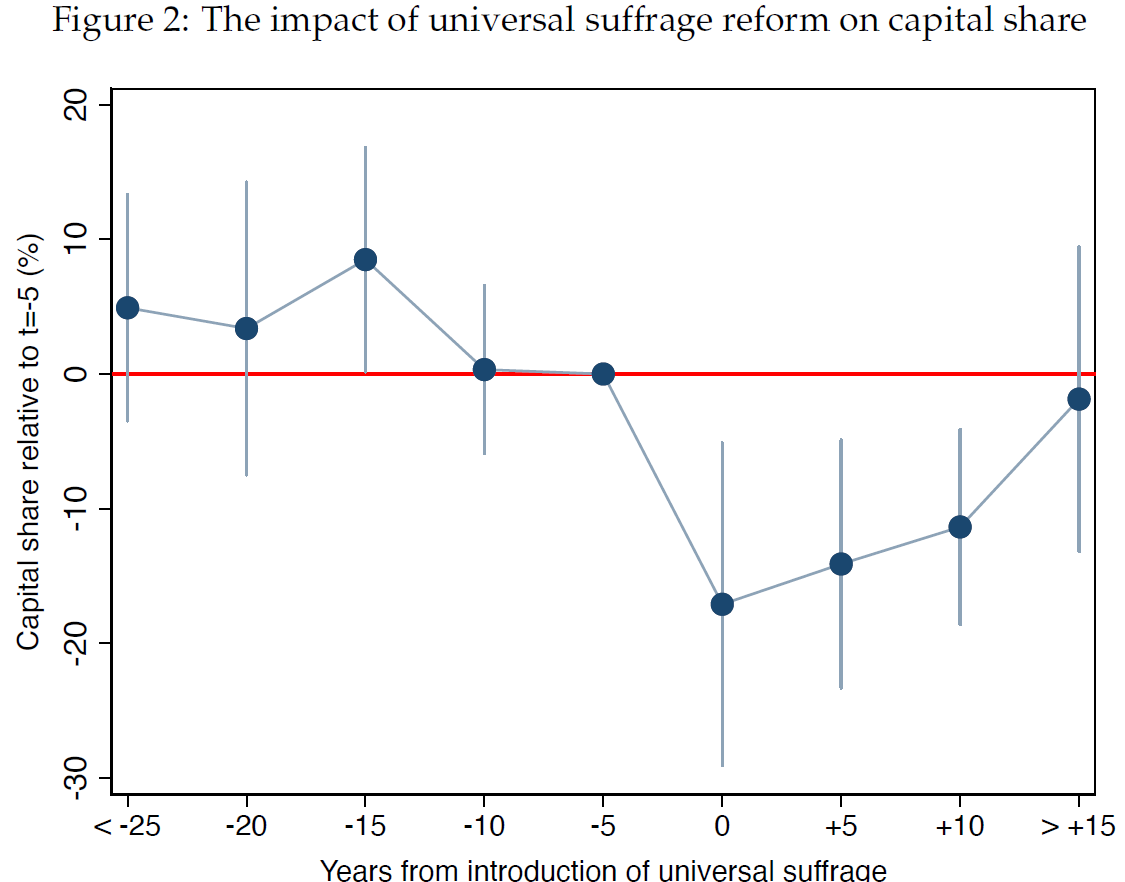Working papers / Unpublished works
See here for: Other publications (book chapters, reports), Media/Op-Ed, Swedish publications.
AI, Automation, and Taxation
Bastani, S, Waldenström, D (2024). “AI, Automation, and Taxation”, CEPR DP.
Abstract: This chapter examines the implications of Artificial Intelligence (AI) and automation for the taxation of labor and capital in advanced economies. It synthesizes empirical evidence on worker displacement, productivity, and income inequality, as well as theoretical frameworks for optimal taxation. Implications for tax policy are discussed, focusing on the level of capital taxes and the progressivity of labor taxes. While there may be a need to adjust the level of capital taxes and the structure of labor income taxation, there are potential drawbacks of overly progressive taxation and universal basic income schemes that could undermine work incentives, economic growth, and long-term household welfare.
The Capital Advantage: Comparing Returns to Ability in the Labor and Capital Markets
Bastani, S, Karlsson, J. Kolsrud, K, Waldenström, D (2024). “The Capital Advantage: Comparing Returns to Ability in the Labor and Capital Markets”, Working Paper.
Abstract: Using administrative tax and military records, we show that cognitive ability is more strongly associated with capital income than with labor income. This result holds across intensive and extensive margins, across different income types, and after controlling for education, occupation, inheritance, and parental background. Higher ability individuals save more, are better at selecting high-return stocks, hold more risky assets, and are less likely to live hand-to-mouth. Capital market returns are higher for cognitive ability than for non-cognitive skills, and the difference is stable over time. Rising capital shares, fueled by technological progress, could therefore exacerbate cognitive ability-based economic inequality.
What Determines the Capital Share over the Long Run of History?
Bengtsson, E, Rubolino, E, Waldenström, D (2020). “What Determines the Capital Share over the Long Run of History?”, WP.
Abstract: This paper analyzes the determinants of the labor-capital split in national income for 20 countries since the late 1800s. Our main identification strategy focuses on unique historical quasi-experimental events: i) the introduction of universal suffrage, ii) close election wins of left-wing governments, iii) decolonization, iv) unionization shocks, and v) wars. We also run instrumented panel regressions. Our findings show that the capital share decreased in response to radical institutional and political shifts, such as the introduction of universal suffrage in the early 1900s, the undoing of colonialism and the implementation of redistributive policies during the post-war period. By contrast, the capital share increased following the erosion of trade unionism since the 1980s. Wars, despite destroying the capital stock, generated windfall profits that increased the capital share.


